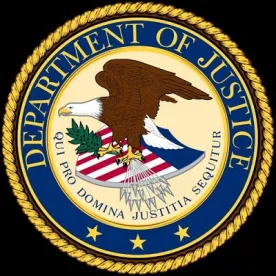April 29, 2021. In this notable case, the United States held a government contractor accountable for cheating the service-disabled, veteran-owned small business program by imposing civil and criminal liability on the contractor. This California construction firm paid $2.5 million in a False Claims Act settlement, entered a non-prosecution agreement, and agreed to maintain an ethics and compliance program. According to the allegations, this small business used a front company to receive government contracts that were intended for service-disabled, veteran-owned small businesses. This amounted to alleged fraud on the United States Small Business Administration Program.
The United States created the Service-Disabled Veteran-Owned Small Business Program (SDVOSB), administered by the United States Small Business Administration, to help disabled veterans because of the sacrifices they made for our country. This program reaches out to small businesses owned and controlled by such veterans and provides them with prime and subcontracting opportunities, so that they may receive their fair share of government contracting business. In this case, the contracts at issue were ones awarded by the United States Department of Veteran’s Affairs.
However, one government contractor, Stronghold Engineering, Inc. took advantage of the SDVOSB program by fraudulently using the status of another legitimate SDVOSB contractor to obtain the government contracts for itself. As a result, it benefited from numerous service-disabled veteran-owned small business contracts worth millions of dollars even though it is not a qualified small business and was not controlled by a service-disabled veteran. Instead, it used another company qualified as an SDVOSB—Kadena Pacific, Inc.—as a front company to obtain the government contractors. The Defendant contractor was connected to the SDVOSB through a family relationship. In fact, the SDVOSB-qualified business was an extinct construction company owned by the father of one of the owners of the Defendant contractor.
It was the SDVOSB that had certified to the United States that it qualified for service-disabled small business government contracts and was granted 14 such contracts. However, it was misrepresented that the owner of the SDVOSB controlled the Defendant contractor. That was false. In fact, the owners of the Defendant contractor controlled the SDVOSB and the owners were not service-disabled veterans. Further, it was the employees of the Defendant contractor and not the employees of the SDVOSB that performed all of the work under the contracts awarded by the United States Department of Veterans Affairs.
While this case does not appear to involve a whistleblower, government contractors that exploit the Service-Disabled Veteran-Owned Small Business Program can be exposed by individuals with knowledge that the fraud is occurring. Whistleblowers can be employees of the government contractor or the front company or they can be competitors in the government contracting space. Such individuals can bring their inside knowledge to the attention of a government or law enforcement agency. Whistleblower lawsuits are often brought under the qui tam provisions of the False Claims Act, which allow private parties, known as “relators,” to bring suit on behalf of the government and to share in any recovery. Whistleblowers are protected against retaliation under the whistleblower provisions of the False Claims Act. For demonstrating a commitment to protect the integrity of the SDVOSB Program, whistleblowers usually receive 15% to 25% of the government’s recovery.
The Department of Justice needs whistleblowers to report fraud to help protect government programs and intended beneficiaries, and to hold accountable any company that commits fraud, waste, or abuse in government programs.




 />i
/>i

